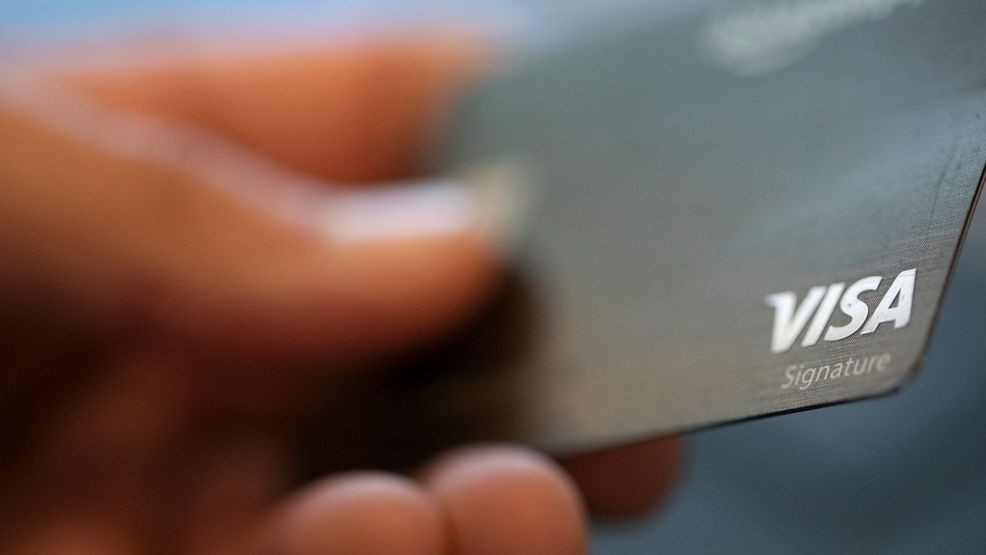Description
(TNND) — Total household debt in the U.S. increased by $185 billion in the second quarter to reach $18.39 trillion, according to a New York Fed report this week.
Mortgage balances, auto loan balances and outstanding student loan debt all increased.
Credit card balances rose by $27 billion from the previous quarter to reach $1.21 trillion.
Bankrate senior industry analyst Ted Rossman said credit card balances currently sit just shy of an all-time record.
But the growth rate has slowed, he said.
And the increase in credit card balances isn’t inherently a bad thing for Americans.
“It's not all bad, for example, when something like credit card balances go up, because that's reflective of economic growth, population growth, more card usage, less cash,” Rossman said. “You don't want to have credit card debt, of course, if you can avoid it. The average credit card rate is 20%, but half of these balances get paid in full every month. So, it's counted as balances, but those people aren't truly carrying debt.”
A recent Bankrate survey found that 46% of people who use a credit card carry debt from one month to the next.
That’s what can snowball and cause financial distress for families.
But the share of credit card users carrying debt has eased from 50% a year ago.
Another personal finance website, WalletHub, also noted that household debt is not at record levels when factoring in inflation.
Total debt is $1.05 trillion below the all-time high, set in 2008, when adjusting for inflation.
“Total debt continues to rise, although not in a worrisome sense,” Rossman said. “This feels like reasonable, restrained kind of growth.”
TIPS FOR DEALING WITH CREDIT CARD DEBT
Credit card debt can become a problem at the household level, Rossman said.
If you make minimum payments toward the average balance ($6,371, according to TransUnion) at the average rate (20.13%), you'll be in debt for more than 18 years and will end up paying $9,259 in interest, he said.
“It really gets back to that idea that credit cards can be like power tools,” Rossman said. “They're really useful or dangerous. It's all about how you use them."
Rossman offered some advice for people who find themselves struggling to keep up with credit card debt.
“My favorite tip is to get a 0% balance-transfer credit card,” he said. “In fact, this year there's a new entry at the top of the market. The U.S. Bank Shield Visa offers 24 months interest-free on balance transfers and new purchases. That's a huge tailwind for your debt payoff efforts.”
An average balance of about $6,000 can be split into 24 interest-free monthly installments of $250.
“That feels a lot more attainable than paying off six grand all at once,” he said.
Folks typically need good to excellent credit to take advantage of a 0% balance-transfer credit card.
That will work for a lot of people but not everyone.
“If you have a lower credit score or a lot of debt ... look at a nonprofit credit counselor like Money Management International or GreenPath,” Rossman said. “They can often negotiate something like a 6% or 7% rate over four or five years.”
Thomas Nitzsche, a financial educator with MMI, said they’ve seen a 13% monthly increase in counseling volume.
They saw the most increase in demand from people aged 21-30 and 31-40, with increases of 18% and 21%, respectively.
And people are coming to MMI for help with more unsecured debt than ever before, about $32,000 on average.
“As they start to struggle, people will typically deprioritize unsecured debt payments, meaning that they need to keep a roof over their head,” Nitzsche said. “And they're trying to hang on to their house, and they're having to pay their essentials and pay utilities and that sort of thing. And often the first things to go unpaid are credit cards.”
Nitzsche said MMI first gets a financial snapshot when people reach out for help.
Not everyone needs to be put on a debt management plan, where MMI helps people pay off their debt at lower rates while increasing their credit score.
A lot of people just need direction to achieve their financial goals, Nitzsche said.
Rossman said there are other levers people can pull when they find themselves in debt with credit cards.
“You could take on a side hustle. You could sell stuff you don't need. You could cut your expenses,” Rossman said. “You don't need to do these things forever, but even in six months you could probably make meaningful progress.”
News Source : https://wfxl.com/news/nation-world/credit-card-balances-at-near-record-121t-experts-offer-tips-for-digging-out-of-debt
Other Related News
08/09/2025
VALDOSTA Ga WCTV - Valdosta City Schools VCS officials held a groundbreaking ceremony Frid...
08/09/2025
ALBANY Ga WALB - Just days before a decades-old cold case trial was set to begin one of th...
08/09/2025
ATLANTA AP The Detroit Lions said safety Morice Norris was in stable condition after he w...
08/09/2025
ALBANY Ga WALB - Friday Aug 8 marks four years since Nigel Brown 9 was struck and killed b...
08/09/2025








